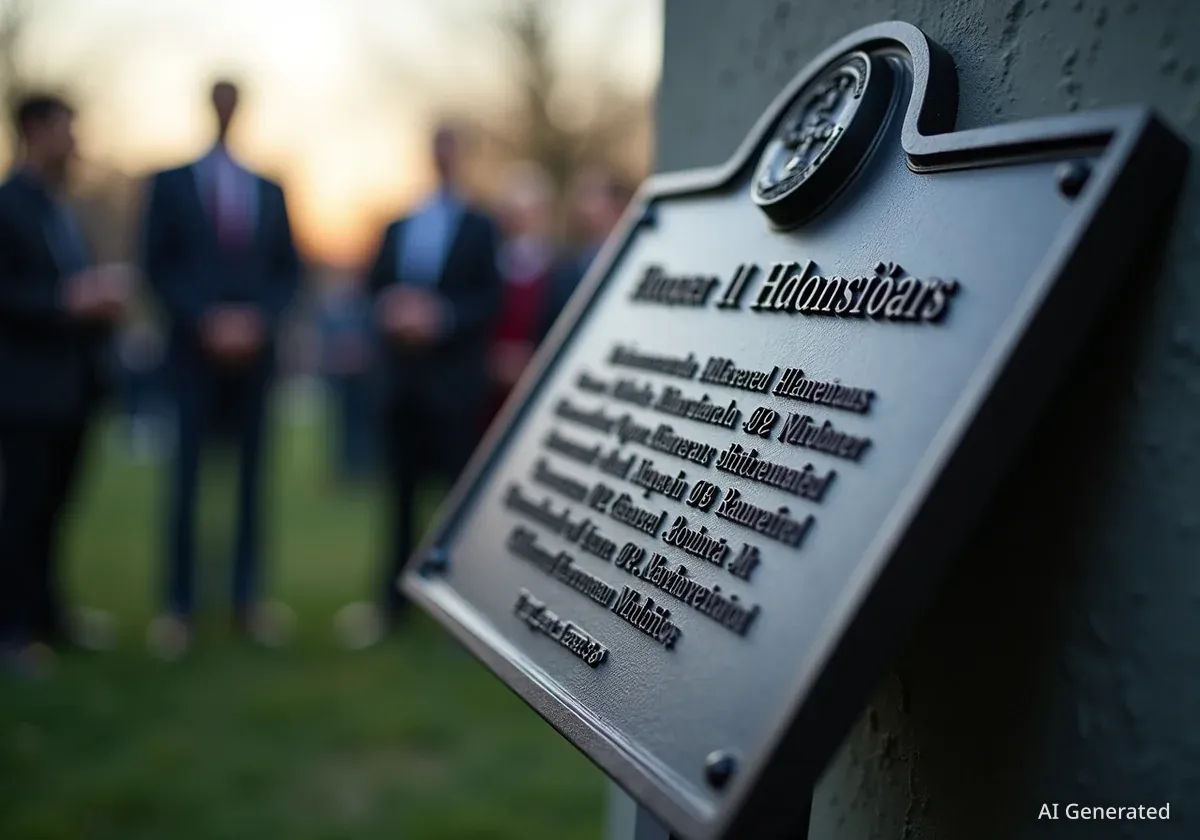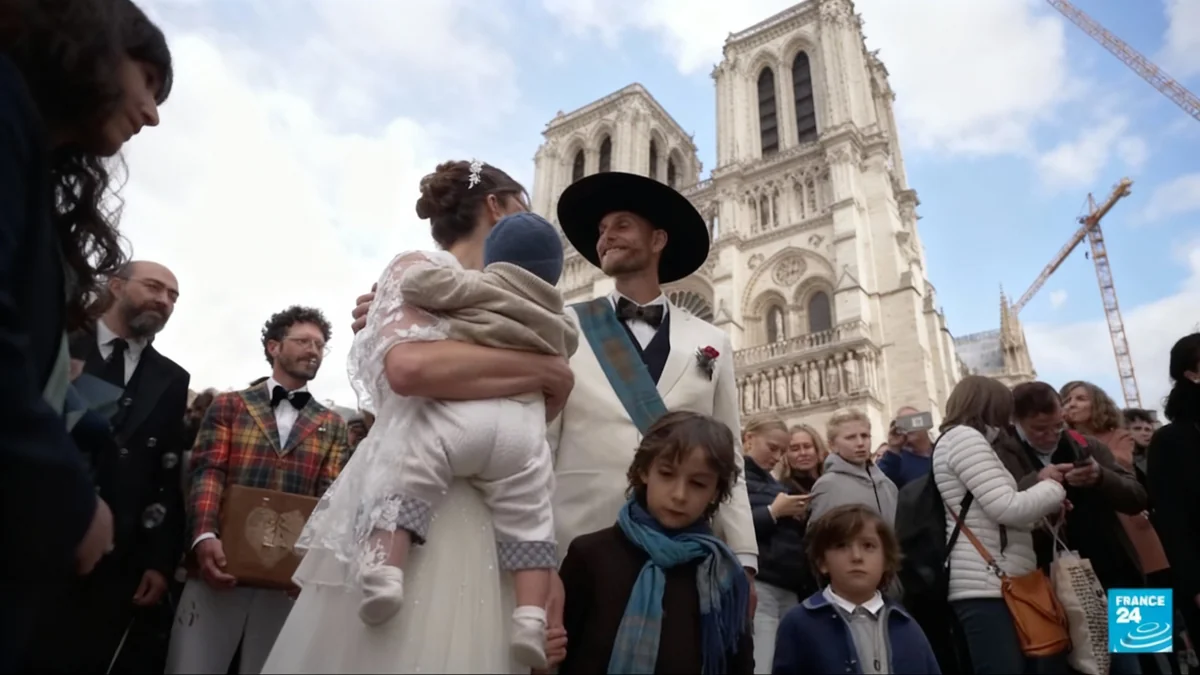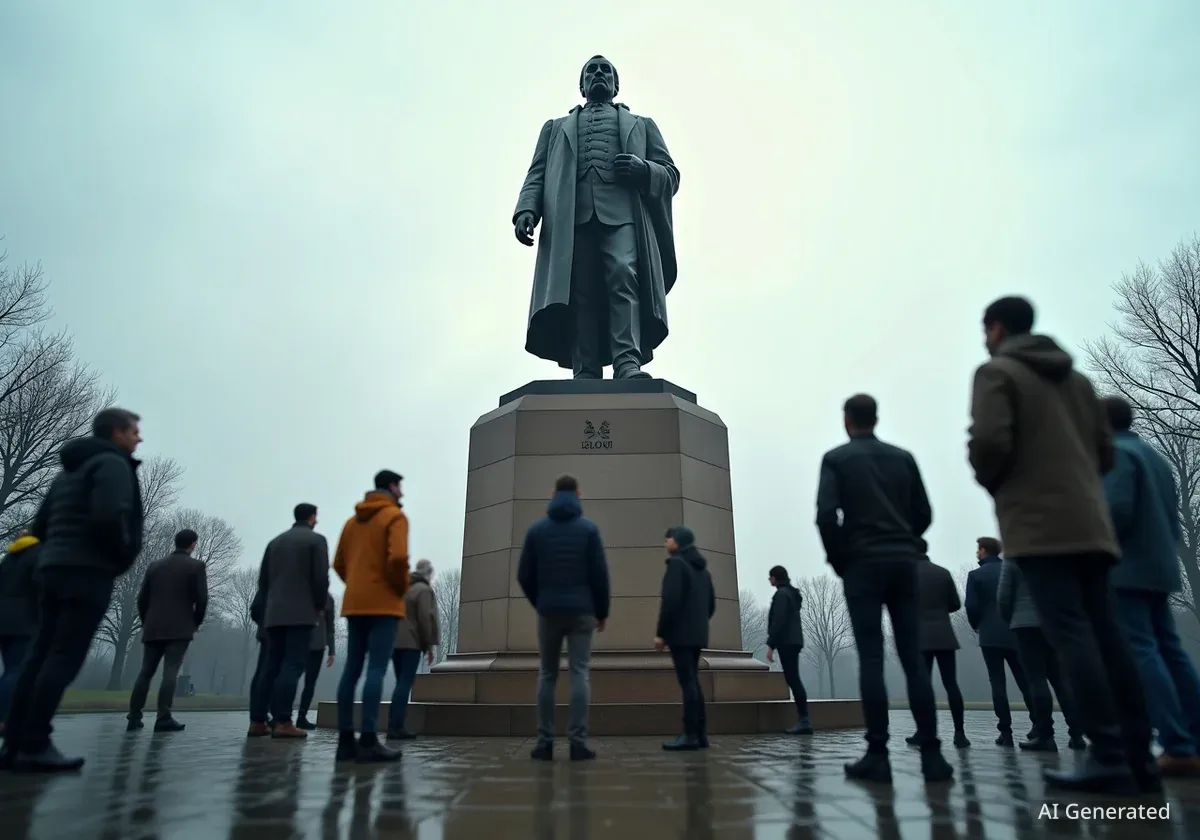A new Ohio historical marker will be dedicated next month at Stonewall Columbus, marking only the fourth such sign in the state to recognize LGBTQ+ history. The ceremony, scheduled for October 3 at the organization's community center, will celebrate Stonewall Columbus's significant contributions to the LGBTQ+ community since its establishment in 1981.
This recognition highlights Stonewall Columbus's early efforts in organizing the city's first Pride march, its consistent advocacy for legislative reforms, and its ongoing commitment to supporting central Ohio's LGBTQ+ population. The marker serves as a permanent testament to the community's past struggles and achievements.
Key Takeaways
- Ohio's fourth LGBTQ+ historical marker will be unveiled at Stonewall Columbus.
- The dedication ceremony is set for noon on October 3 at 1160 N. High St.
- The marker celebrates Stonewall Columbus's 40+ years of advocacy and community building.
- The Ohio History Connection administers the state's historical marker program.
- Federal funding for 10 other LGBTQ+ markers was recently canceled, impacting broader recognition efforts.
Stonewall Columbus: Decades of Advocacy
Stonewall Columbus was founded in 1981. Since its inception, the organization has played a central role in the LGBTQ+ rights movement in central Ohio. Its initiatives have included organizing the first Pride march in Columbus, which helped bring visibility to the community.
The organization has also been a strong voice in advocating for legal and social changes. These efforts aim to ensure equal rights and protections for LGBTQ+ individuals. The new historical marker acknowledges these long-term contributions.
"This marker is more than a symbol of our past; it’s a beacon for the future," said Densil Porteous, executive director of Stonewall. "It honors the generations who built this movement and reminds us of the ongoing work to ensure equity, affirmation and belonging for all LGBTQ+ people in our community."
Important Fact
The Stonewall Columbus Community Center is located at 1160 N. High St. in the Short North area of Columbus, Ohio. This location serves as a hub for community activities and support services.
Ohio's Limited LGBTQ+ Historical Recognition
The Ohio historical marker program is managed by the Ohio History Connection. This program has historically recognized only a small number of LGBTQ+ sites across the state. The upcoming Stonewall Columbus marker will be the fourth of its kind.
Previous LGBTQ+ landmarks recognized include Summit Station, Ohio’s first lesbian bar, which received a marker in 2023. Another marker was placed in 2009 near the Dayton Metro Library, honoring Ohio-born author Natalie Clifford Barney. In 2017, a marker was installed in Cleveland near the first Lesbian-Gay Community Service Center.
Background on Historical Markers
Historical markers serve to educate the public about significant people, places, or events. They are usually placed at the location where the historical event occurred or where the historical figure lived or worked. These markers help preserve and share local and state history.
The Role of Community Leaders
Community leaders emphasize the importance of this recognition. They view it as a validation of the LGBTQ+ community's strength and resilience. The marker also highlights the ongoing need for inclusion and acceptance.
"This recognition stands as a testament to the strength of our community," said K Terry Smith, president of Stonewall’s board of trustees. "Stonewall Columbus has been — and will continue to be — a catalyst for inclusion."
The dedication ceremony on October 3 will include speeches from local leaders. There will also be reflections on Stonewall Columbus's history. The public is invited to attend and engage with the community center. The event is free and open to everyone.
Challenges in Documenting LGBTQ+ History
Despite the upcoming marker, documenting LGBTQ+ history in Ohio faces significant challenges. In April, a federal grant intended to fund 10 other LGBTQ+ historical markers in Ohio was canceled. This decision came from the Department of Government Ethics (DOGE).
The cancellation meant a loss of nearly $250,000 in federal funds. While these cuts did not affect the Stonewall Columbus marker, the organization expressed disappointment. The broader impact was the inability to recognize other important sites.
- A former Columbus hospice for HIV patients.
- A Cincinnati bookstore housing the Ohio Lesbian Archives.
- Kent State University's first professor of gay and lesbian studies.
- A historic LGBTQ+ district in Akron.
- Toledo City Council's first LGBTQ+ member.
These were among the sites that would have received markers with the canceled funding. The loss of these markers represents a setback for historical preservation efforts.
"These markers are not just plaques in the ground — they are vital pieces of public memory that affirm LGBTQ+ lives, struggles, and contributions to Ohio’s civic and cultural fabric," Porteous stated when the funding was cut. "We are saddened by the realization that we may not see the full 10 markers originally envisioned become a reality."
Preserving History in Challenging Times
The cancellation of federal funding for additional markers underscores ongoing difficulties. These challenges include the political and cultural climate surrounding LGBTQ+ issues. Leaders emphasize the importance of preserving these stories, especially for marginalized groups.
According to Porteous, the loss of these markers is not just symbolic. It represents a conscious erasure of history. This erasure impedes collective progress. He noted that LGBTQ+ individuals, particularly trans and nonbinary individuals, are currently facing increased attacks.
In response, there is a renewed call to strengthen efforts to preserve LGBTQ+ stories. This includes documenting their lives, struggles, and contributions to society. The Stonewall Columbus marker serves as a reminder of this critical work.
The dedication ceremony on October 3 is a public event. It offers an opportunity for community members and allies to come together. The event will celebrate a significant milestone for LGBTQ+ history in Ohio. It also reinforces the commitment to continued advocacy and visibility.





